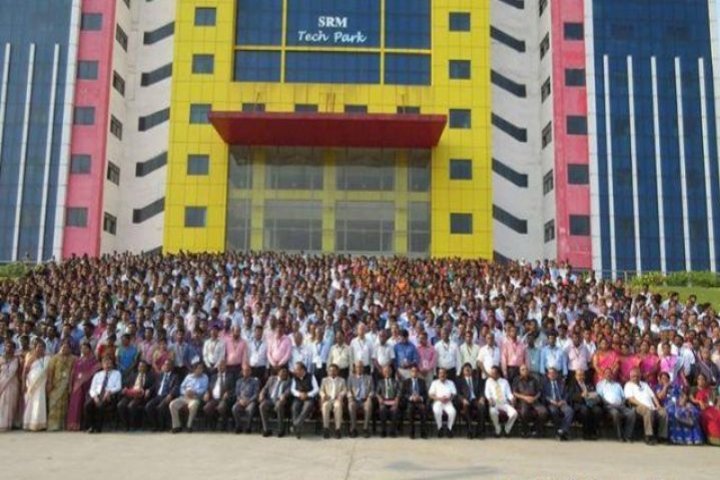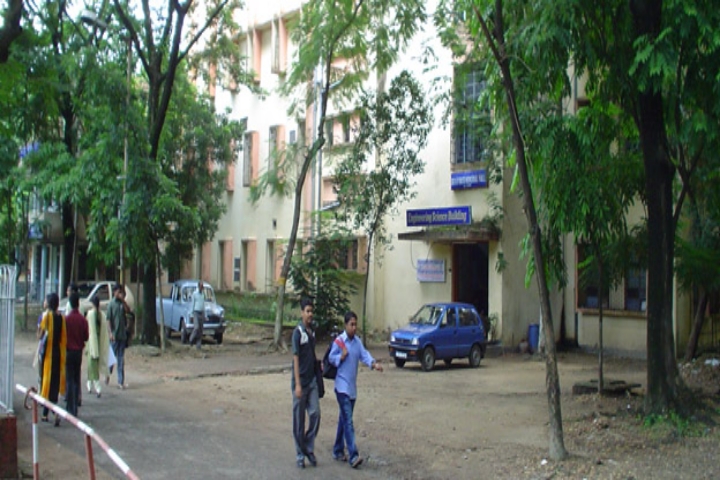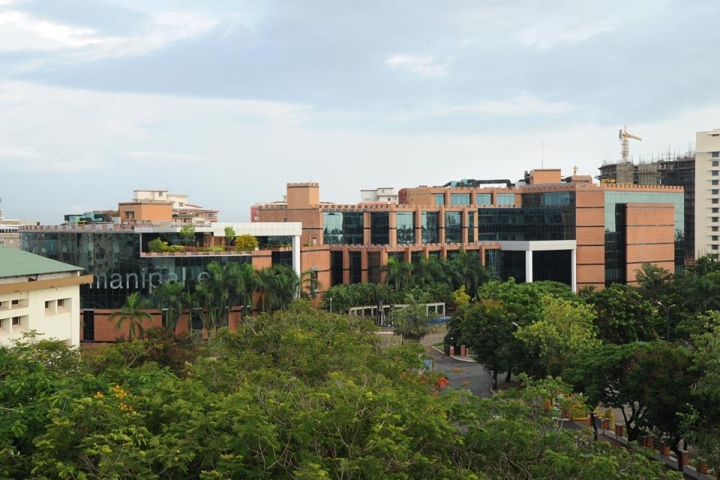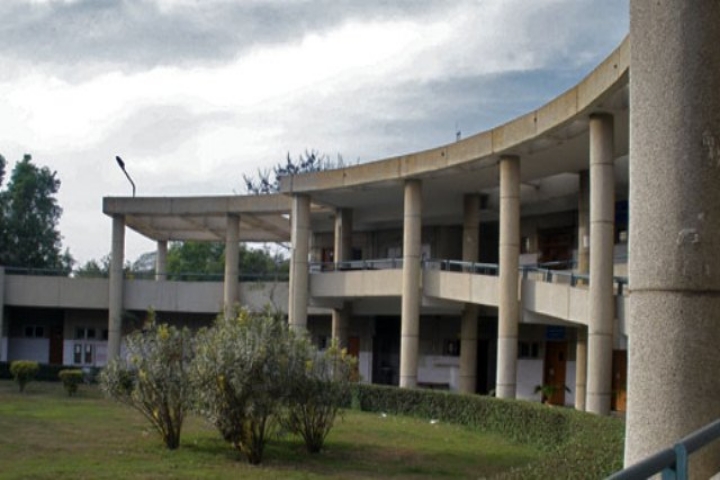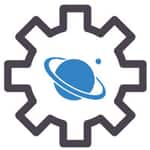
Software Engineering Course Details - Fees, Subjects, Syllabus, Duration, Eligibility, Career Scope
Degrees offered: M.E /M.Tech., B.E /B.Tech, B.Sc.(Hons), BS, M.Sc.
What is Software Engineering
Software Engineering is a branch of computer science that deals with the design, development, testing, and maintenance of software applications. It equips students with the necessary skills to develop efficient and effective software systems. There are more than 170 colleges in India that offer Software Engineering-related courses.
To get enrolled in a UG Course for Software Engineering, a student must pass 10+2 examinations in the Science stream with a minimum score of 50 per cent. Similarly, to be eligible for a postgraduate degree in Software Engineering, a student must have a bachelor’s degree in Software Engineering with a minimum score of 50 per cent.
Top Colleges that offer Software Engineering courses are Jadavpur University, Vellore Institute of Technology, NIT Rourkela, Thapar Institute of Engineering and Technology, and BITS Pilani. Students who opt for a course in software engineering get hired as Application Software Engineers, Web Developers, System Software Engineers, and System Analysts at leading companies.
Highlights: Software Engineering
| Particulars | Values |
|---|---|
Branch Name | Software Engineering |
Degree | |
Duration | UG: 4 years PG: 2 years |
Eligibility Criteria | UG: 10+2 ( Science Stream) PG: Bachelor's degree in Software Engineering |
Admission Process | Entrance Examination/ Direct Admission |
Top Entrance Exams | JEE Main, JEE Advanced, BITSAT and GATE. |
Average Course Fees | Rs. 10,250 to Rs. 7.81 Lakhs |
Career Options | Application Software Engineer, Web Developer, System Software Engineer and System Analyst. |
Average Salary | Rs. 7.5 LPA ( for a Software Engineer) |
Top Recruiting Companies | Google, Facebook, Accenture, Microsoft, Amazon and Infosys |
Specialisation or Similar Ones
Software Engineering is a diverse and broad field of Engineering consisting of various topics such as Computer Programming, Web Development, Data Structures, and Cyber Security. Some of the degrees related to Software Engineering are mentioned in the table below:
M.Sc Software Engineering Integrated | M.Tech Software Engineering |
ME Software Engineering | |
M.Tech and Ph.D Software and Data Engineering | MS by Research Software Engineering |
Top Software Engineering Colleges in India
Software Engineering is one of the most popular branches of engineering and is offered by several institutes in India. These institutes are well known for their infrastructure, their faculty, and their placements. Mentioned below are the top colleges offering Software Engineering courses.
| Colleges | Fees |
|---|---|
Rs. 2.50 Lakhs | |
Rs. 2.54 Lakhs | |
- | |
Rs. 2.68 Lakhs | |
Rs. 1.70 Lakhs | |
Rs. 1 Lakhs | |
Rs. 7.81 Lakhs | |
| BVM Engineering College | Rs. 1.34 Lakhs |
| Gyan Vihar School of Engineering and Technology, Jaipur | Rs. 2.55 Lakhs |
| HJD Institute of Technical Education and Research, Kutch | Rs. 2.27 Lakhs |
Note: The fee structure provided above can be for any particular Software Engineering course (Diploma/ Degree/PGD).
Top Private Software Engineering Colleges in India
Software Engineering courses are offered by many private institutes in India, the admission to these institutes is based on either entrance examination or direct admission based on merit score. These institutes usually charge a higher tuition fee in exchange for the state-of-the-art facilities they provide.
| Name of the College | Fees |
|---|---|
Rs. 4.87 Lakhs | |
Rs. 3.81 Lakhs | |
Rs. 17.00 Lakhs | |
Kalasalingam Academy of Research and Education, Virudhunagar | Rs. 12.00 Lakhs |
Rs. 16.36 Lakhs | |
Rs. 4.00 Lakhs | |
Sri Krishna College of Engineering and Technology, Coimbatore | Rs. 1.05 Lakhs |
Rs. 1.62 Lakhs | |
Rs. 9.14 Lakhs | |
Rs. 2.52 Lakhs |
Top Government Software Engineering Colleges in India
Software Engineering courses are also offered by government institutes in India. They are comparatively cheaper than a private institute but are enriched with experienced faculty members, who make learning easier for students. Mentioned in the table below are the top government institutes offering Software Engineering courses in India.
| Name of the College | Fees |
|---|---|
Rs. 3.56 Lakhs | |
Rs. 7.81 Lakhs | |
Rs. 1.70 Lakhs | |
Rs. 1.62 Lakhs | |
Rs. 2.56 Lakhs | |
Rs. 86,800 | |
Rs. 1.78 Lakhs | |
Rs. 10,250 | |
Rs. 1.32 Lakhs | |
School of Computer Science and Information Technology, Devi Ahilya Vishwavidyalaya, Indore | Rs. 1.15 Lakhs |
Eligibility Criteria (UG & PG) of Software Engineering
Candidates applying for the examination should ensure that they fulfil all eligibility conditions for admission to the software engineering course, be it at graduation or postgraduate level. The admissibility to this field is similar to the standard mentioned for any other engineering course.
Eligibility Criteria for UG Courses
Students must check the eligibility criteria for the Software Engineering undergraduate course on the official website of the desired institute. Students need to meet admission requirements set by universities to secure admission. The eligibility criteria for admission to undergraduate programmes in software engineering are as follows:
Candidates must pass their 12th-grade science stream with Physics, Chemistry, and Mathematics as compulsory subjects.
Students must have a minimum score of 50 per cent in their 10+2 examinations.
Students are required to sit for relevant entrance exams such as JEE Main, JEE Advanced, and BITSAT to get admitted to the course.
Top Entrance Examinations for UG Courses
To gain admission to top colleges, candidates should appear for the respective entrance examination conducted at national, state, and university levels. Below, we have provided some of these Software Engineering entrance exams.
| Exam Name | Exam Level | Conducting Body | Exam Schedule |
|---|---|---|---|
National | NTA | ||
National | IITs | ||
University | BITS |
Eligibility Criteria for PG Courses
The candidates wishing to apply for postgraduate courses in the field of Software Engineering must make sure that they fulfil the eligibility criteria set forth by the university or college they wish to get into. The eligibility criteria to get admission into Software Engineering postgraduate programmes are mentioned below:
Candidates must have a Bachelor’s degree in Software Engineering or any related discipline to be eligible for the PG Programme.
Students must have a minimum aggregate score of 50 per cent in their undergraduate examinations.
Students are also required to appear for entrance examinations such as GATE and meet the required cut-off to secure admission.
Top Entrance Examination for PG Courses
Admission to PG courses in Software Engineering is done based on students’ scores in entrance exams like GATE. Details regarding the GATE Exam are furnished in the table below:
| Exam Name | Exam Level | Conducting Body | Exam Schedule |
|---|---|---|---|
National | IITs |
College Predictors VIEW ALL
Scope of Software Engineering in India and Abroad
The field of Information Technology has broadened its scope significantly, both in India and internationally, leading to a surge in opportunities for software engineering professionals. Esteemed software companies, as well as public and private sectors, are actively recruiting software engineers and developers.
Additionally, these professionals can work independently, serve in financial or educational institutes, and consultancies, or even pursue teaching. Software engineering graduates can explore careers in diverse domains such as artificial intelligence (AI), data analysis, data sciences, web and mobile application development, video game development, ethical hacking, wireless networks, animation, and computer graphics.
Course Fees Software Engineering
| Minimum Fees | Maximum Fees | |||
|---|---|---|---|---|
| Private | Government | Private | Government | |
| UG | ||||
| PG | ||||
| DOCTORAL | ||||
Course Subjects
Software Engineering Syllabus for UG Courses
Software Engineering courses are offered in various degrees at the undergraduate level such as B.Sc, and B.E/B.Tech. The duration of the course is four years depending on the degree. In the table below, we have mentioned the B.Tech Software Engineering syllabus of Jain University.
Semester- 1 | |
Engineering Physics | Fundamentals of Electrical and Electronics Engineering |
Communicative English | Problem-Solving Techniques |
Calculus and Matrix Algebra | Applied Chemistry |
Mind Management and Human Values – 1 | PCL 1- Research and Entrepreneurship Project |
Semester- 2 | |
Data Structures | Probability and Vector Space |
Mind Management and Human Values – 2 | Object Oriented Programming |
Digital Logic Design | Workshop Practices |
Biology for Engineers | Python Programming |
PCL 1- Research and Entrepreneurship Project | - |
Semester- 3 | |
Economics for Engineers | Operating Systems |
Computer Organization and Architecture | Foundations of Mathematics – 1 |
Discrete Mathematics and Graph Theory | Design and Analysis of Algorithms |
Indian Constitution | Project Centric Learning |
Semester- 4 | |
Optimization Techniques | Software Engineering |
Theory of Computation | Web Programming |
Open Elective I | Database Management Systems |
Foundations of Mathematics – 2 | Project 2 |
Internship -1 | - |
Semester- 5 | |
Data Communication and Networks | Software Testing |
Department Specific Elective – 1 | Research Methodology |
Agile Software Development | Open Elective – 2 |
Project Centric Learning | Business Communication and Presentation Skills |
Semester- 6 | |
Automation Testing | Department Specific Elective – 2 |
Software Architecture and Design | Department Specific Elective – 3 |
Open Elective – 3 | Environmental Studies |
Project – 3 | Internship – 2 |
Semester- 7 | |
Object Oriented Analysis and Design | Department Specific Elective – 4 |
DevOps | Software Quality Management |
Department Specific Elective – 5 | Open Elective – 4 |
Project – 4 | - |
Semester- 8 | |
Software Project Management | Department Specific Elective – 6 |
Intellectual Property Rights | IT Infrastructure Technology |
Research* | Internship - 3 |
Software Engineering Syllabus for PG Courses
The syllabus of postgraduate courses in Software Engineering depends on the institute, but the overall course structure remains almost the same for every institute. In the table below, we have mentioned the M.Tech Software Engineering syllabus of BITS Pilani.
Semester- 1 | |
Software Architectures | Cloud Computing |
Agile Software Processes | Software Product Management |
Semester- 2 | |
Software Quality Assurance and Testing | Elective- 1 |
Elective- 2 | Elective- 3 |
Semester- 3 | |
Elective- 4 | Elective- 5 |
Elective- 6 | Elective- 7 |
Semester-4 | |
Dissertation | - |
List of Electives | |
Data Structures & Algorithms Design | Data Visualization and Interpretation |
Artificial and Computational Intelligence | Blockchain Technologies & Systems |
Cyber Security | Data Warehousing |
Applied Machine Learning | Secure Software Engineering |
Middleware Technologies | Advanced topics in Software Engineering |
Careers in Software Engineering
After completing Software Engineering courses at the undergraduate and postgraduate level, graduates can select various career options. There are plenty of jobs in software engineering both in the public and private sector or in an MNC and a startup. Mentioned below are the career options available after Software Engineering.
Job Profile | Job Description |
Software Engineer | Software Engineers are information technology specialists who create, develop, and manage computer software for a business. They apply software engineering concepts, creativity, and technical know-how to help a business find solutions to both new and persistent issues. |
Web Developer | Web Developers are professionals who design, create, and maintain websites. They focus on designing and coding a website based on specifications mentioned primarily and considering how customers use it. |
System Software Engineer | System Software Engineers are professionals who specialise in the design, integration, and management of complex systems, which often include hardware, software, and network components. They deal with maintaining and supporting the technical infrastructure. |
Computer System Analyst | Computer System Analysts also known as System Analysts are professionals who act as vital links between users, programmers, and MIS managers. Their main responsibility is to conduct a comprehensive study of a system, identify its activities and objectives, and establish a process to achieve these objectives. |
Upcoming trends
In this digitised world, there has been massive growth in the field of software engineering. People are constantly hooked on apps, be it on a computer or mobile phone. As more and more people are getting access to the internet, the sphere of software engineering is blooming. Some of the emerging trends in the Software Engineering industry are:
- Cloud-Native Application Development
- Artificial Intelligence (AI)
- Blockchain Technology
- Automation
- Cybersecurity
- User Experience (UX) Design
Job Profiles and Top Recruiters
 Amazon.com Inc.
Amazon.com Inc. Apple Inc.
Apple Inc. Facebook Inc.
Facebook Inc. Google LLC
Google LLC Microsoft Corporation
Microsoft Corporation Accenture Services Private Limited
Accenture Services Private LimitedSoftware Engineering graduates get employed at leading companies for various job profiles. The demand for these professionals exists both in the government and private sectors. Students can also choose to work in an independent setting after the completion of their degrees.
Average Salary
The remuneration of software engineering professionals varies based on their qualifications, experience, and the job profile that is offered to them. The following table lists the details regarding the average salaries one can earn after Software Engineering courses, against different job profiles.
| Job Profile | Average Salary |
|---|---|
Application Software Engineer | Rs. 7.7 LPA |
Web Developer | Rs. 4.4 LPA |
System Software Engineer | Rs. 7.4 LPA |
System Analyst | Rs. 10.2 LPA |
Source: Ambition Box
Required Skillset for Software Engineering
Candidates wishing to apply for Software Engineering should have certain skills to perform well academically and professionally in their careers. Some important skills required for the Software Engineering course are mentioned below:
- Problem-Solving
- Attention to Detail
- Teamwork
- Multitasking
- Communication Skills
Course Curriculum for Software Engineering
The Software Engineering course curriculum is designed to provide students with a comprehensive understanding of the software development process. It includes the study of programming languages, data structures, algorithms, and computer architecture in the initial stages. Students also learn about software design, testing, and maintenance.
In the later stages of the course, students delve into more specialised subjects such as software project management, software quality assurance, and software security. They also gain practical experience through project work and internships. The curriculum equips students with the skills needed to design, develop, and maintain software systems.
Popular Software Engineering Entrance Exams in India
COMEDK UGET
Exam Date: 10 May, 2025
MHT CET
Exam Date: 11 Apr, 2025 - 13 Apr, 2025
SRMJEEE
Application Process: 12 Nov, 2024 - 16 Apr, 2025
Karnataka PGCET
Application Process: 24 Apr, 2025 - 10 May, 2025
LPU NEST
Application Process: 26 Mar, 2025 - 15 Apr, 2025
Popular Software Engineering Colleges in India VIEW ALL
RVCE Bangalore
- Fees: ₹ 161720
- Exams: GATE , Karnataka PGCET
MIT Manipal
- Fees: ₹ 400000
- Exams: GATE , MET M.Tech
Frequently Asked Questions (FAQs)
Question: What are some important exams in the field of Software Engineering?
Answer :
The top exams in the field of Software Engineering are JEE Main, JEE Advanced, BITSAT, and GATE (the GATE exam is specifically for postgraduate courses).
Question: What is the salary of a Software Engineering graduate?
Answer :
The salary depends on the company, job role, experience of the candidate, and location of the company. The average salary of a Software Engineer in India is approximately Rs. 7.5 LPA.
Question: What is the duration of Software Engineering courses at undergraduate and postgraduate level?
Answer :
The duration of undergraduate courses in the field of Software Engineering is four years and that of postgraduate is two years.
Question: What are the top companies hiring Software Engineering graduates?
Answer :
Endless companies are hiring Software Engineering graduates, out of which the well-known companies are Facebook, Apple, Google, Accenture, Microsoft, and Amazon.
Question: What are some career options in the field of Software Engineering?
Answer :
There are many career options in the field of Software Engineering such as Technical Writer, Technical Recruiter, Data Scientist, Cyber Security Analyst, Game Developer, IT Consultant, and Web Developer.
Question: What are the key responsibilities of a software engineer?
Answer :
The responsibilities of a software engineer include Retrieving data and analysing it, designing and coding, fixing the coding, testing the code turning, monitoring the application, and assuring the quality and checking abnormalities.
Question: How can one improve as a software engineering professional?
Answer :
As technology is advancing day by day, software engineers have to constantly upskill themselves. They have to be aware of the new technology and learn how to use it. This constant upgradation will make one a proactive and reliable engineer. There are several certificate courses available online.
Question: What are the top colleges to pursue software engineering in India?
Answer :
The top colleges in India for software engineering are the Indian Institute of Technology, National Institute of Technology, Birla Institute of Technology and Science, Pilani, Institute of Technology – Banaras Hindu University, Varanasi, Indian Institute of Science, Bengaluru.
Question: Which programming languages a software developer should know to work on?
Answer :
Many programming languages vary from each other depending upon the use. Some of them that come quite handy to a software developer are Python, JAVA, C Programming, LISP, MATLAB, and SQL.
Question: Which one is better- BCA or BTech in Computer Science, to be a software engineer?
Answer :
BCA is a three-year undergraduate degree, designed to build programming skills for developing resource software and websites. On the other hand, a B.Tech. in Computer Science is a four-year undergraduate degree that trains students at a technical level (Software, Hardware, applications). It is more focused on making new technology and mathematical skills and concepts.




